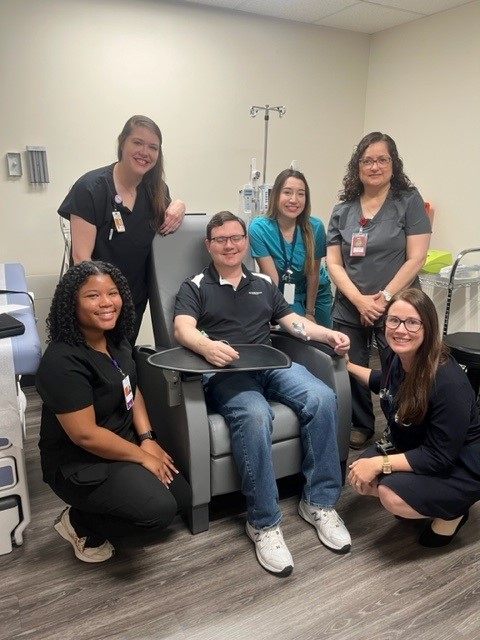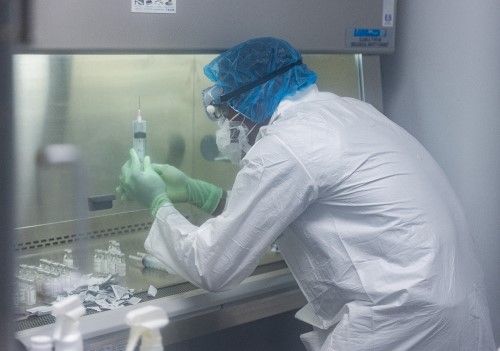Groundbreaking Gene Therapy at Gulf States
 On Thursday, October 24, the Gulf States Hemophilia and Thrombophilia Center’s (GSHTC) clinical team successfully administered a hemophilia gene-therapy drug to the first patient in Texas outside of a clinical trial setting. This new therapy for patients represents the Center’s longstanding commitment to excellent patient care.
On Thursday, October 24, the Gulf States Hemophilia and Thrombophilia Center’s (GSHTC) clinical team successfully administered a hemophilia gene-therapy drug to the first patient in Texas outside of a clinical trial setting. This new therapy for patients represents the Center’s longstanding commitment to excellent patient care.
Hemophilia is a blood disorder that can be passed from a parent to their child through genes. It is caused by a mutation or change in one of the genes that prevents the clotting protein from working properly or to be missing altogether which then may lead to spontaneous bleeding. If not diagnosed and treated early, hemophilia can lead to crippling pain, internal bleeding into muscles and joints, severe joint damage, disability, and even early death. Hemophilia A, the most common of the two types of hemophilia, is estimated to affect as many as 33,000 males in the U.S. This type of gene therapy addresses the underlying genetic cause of Hemophilia A and has the ability to reduce the need for traditional clotting factor replacement therapies.

This treatment for the patient marked a significant milestone for this Program. The patient was incredibly appreciative of walking through this journey with the GSHTC Team. After many months of discussion and preparation, this would not have been possible without the exceptional teamwork displayed by all GSHTC staff. “Being able to prepare the drug in our University Pharmacy and then infuse within the clinic represents the dedication of this team,” said Miguel Escobar, MD, Medical Director at the Gulf States Hemophilia and Thrombophilia Center.
The patient was administered the FDA-approved infusion, Roctavian™, to treat hemophilia A, and it was approved by the FDA on June 29, 2023. Patient will continue to have close monitoring with his medical team to evaluate the impact of this new treatment.